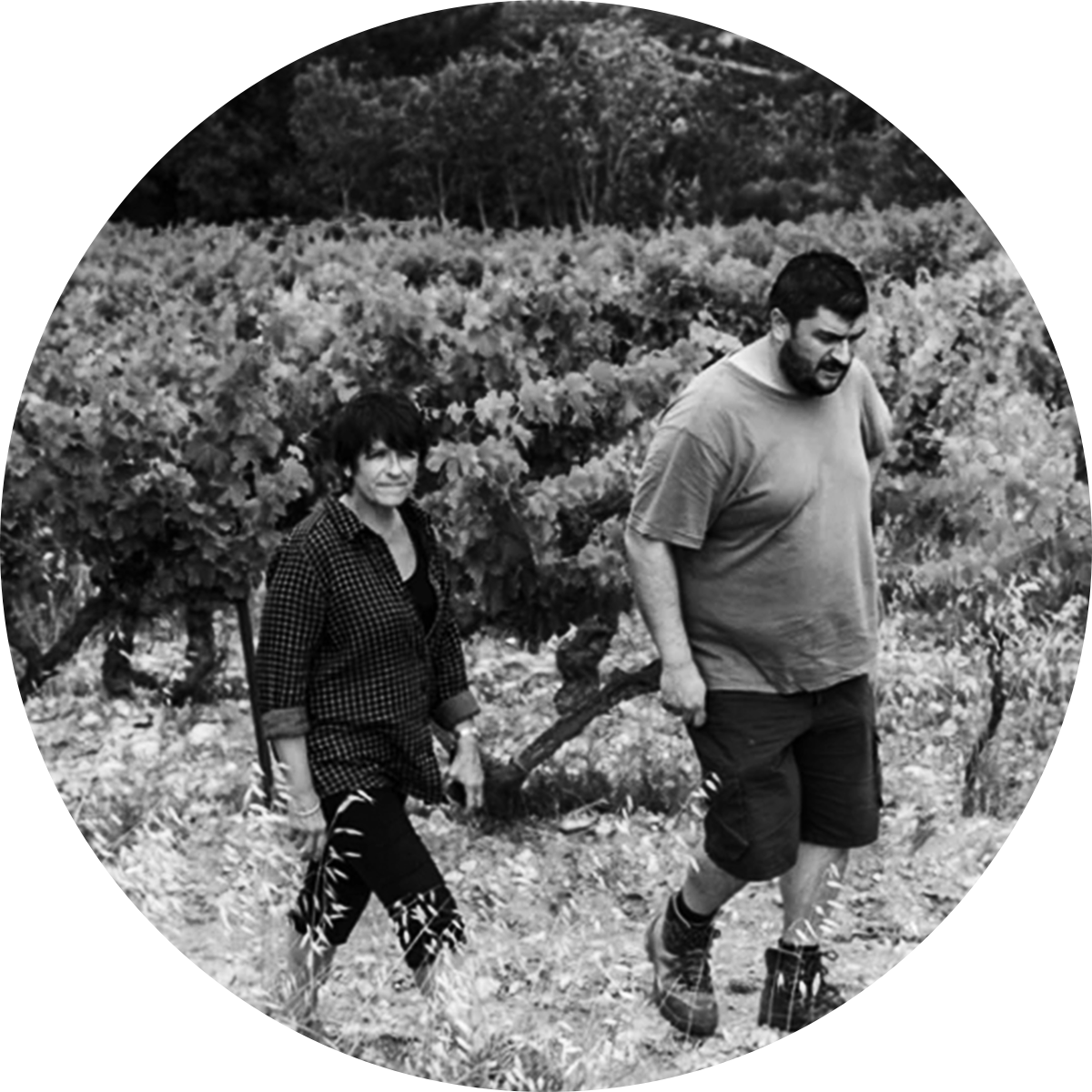DOMAINE GRAMENON & DOMAINE MAXIME-FRANÇOIS LAURENT
MAXIME-FRANÇOIS LAURENT & MICHÈLE AUBÉRY
Southern Rhône Valley, France
"As purity remains the ever inaccessible and unrealistic target, we are just aiming at expressing the very best, without betraying the terroir and the grapes, while best adapting to the differences of the vintage." - The Laurents
The first vintage to ever be bottled at the Domaine Gramenon was in 1990. Michèle and Philippe always cared about their vines with passion and conviction, in a very natural way. Established in the Rhône area, their estate is spread over 26 hectares. Since 1999, Michèle has worked the vineyards alone as Philippe tragically died in an accident, until her son Maxime-François Laurent came to join the estate and help. They are now farming both young and very old vines. Maxime-François has now begun to craft his own wines, on a 4 hectares parcel. He is currently bottling two cuvées (Il fait soif and Rubiconde) at the estate under his name. Above the implementation of organic farming, the family is also very involved in sustainability, growing their own food and raising their own animals. Bottling old-vine grapes without sulfur addition is risky but shows their will of highlighting the powerful aroma of their production by preserving its freshness.
-
Maxime-François Laurent Rubiconde 2021
Regular price HK$240.00Regular priceUnit price / per -
Maxime-François Laurent Il Fait Soif 2022
Regular price HK$220.00Regular priceUnit price / per
BACKGROUND OF NATURAL WINE IN RHÔNE VALLEY
Nestled in southeastern France, the Rhône Valley boasts a rich winemaking heritage dating back to ancient times. Divided into two distinct regions, the Northern Rhône and the Southern Rhône, this area is renowned for its diverse range of wines, including robust reds, elegant whites, and aromatic rosés. Syrah dominates the Northern Rhône, producing iconic wines such as Hermitage and Côte-Rôtie, while the Southern Rhône is famed for its Grenache-based blends, most notably in Châteauneuf-du-Pape. The region's Mediterranean climate, diverse terroir, and centuries of winemaking tradition contribute to the Rhône Valley's status as one of France's premier wine regions.
Organic, Biodynamic and Natural wine. What’s the difference?
To understand this concept and its various ramifications, it is necessary to keep something clear in mind: before the 20th century and the spreading of affordable synthetic fertilisers, all farming was organic. When the shift to the use of synthetics and pesticides happened, it became necessary to diversify traditional organic farming from the new modern farming.
ORGANIC WINE
Simply put, organic farming forbids the use of synthetic fertilisers, synthetic pesticides, herbicides, or genetically modified organisms. The basic requirements are generally specific and engage the farmers not to use any chemical fertilisers and other synthetic products in the vineyard. It does not prevent the vintner from using the conventional winemaking process after harvesting.
BIODYNAMIC WINE
Let’s take organic farming one step further: Biodynamic. The creator of this agricultural system is the Austrian philosopher Rudolf Steiner, who developed the principles of biodynamics in a series of lectures given in 1924 in Germany. Here lies the foundation of true organic wines, with a strict limit in the use of additives, stringent requirements and at the end obtaining a biodynamic certification.
NATURAL WINE
The previous definitions are usually, and rightfully, associated with it, because most natural wine is also organic and/or biodynamic. But not vice versa!
Natural wine is wine in its purest form, simply described as nothing added, nothing taken away, just grapes fermented. No manipulation whatsoever, minimal intervention both in the vineyards and in the winery. Healthy grapes, natural yeast and natural fermentation, with no filtration nor fining. Sounds easy, right? However, making natural wine is unforgiving and it requires a bigger amount of work than conventional wine. To this day, natural wine has no certification yet.






